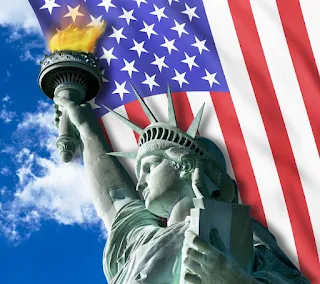From her historic vice-presidential nomination and subsequent election victory many have been inspired, especially among marginalized communities, of black, brown, red, yellow and even white marginalized communities.
However, as Kamala Harris eyes a future presidential bid, questions arise about whether America is ready to embrace a Black female president or if the entrenched status quo will thwart her ambitions. This narrative delves into Harris's impact, the challenges she faces, and the broader implications for America's political future.
Kamala Harris, once Senator of the State of California, as well as that state's Attorney General. Her rise in American politics, symbolize a beacon of hope for many who feel disenfranchised by the traditional political system. Her nomination was not just a political strategy; it was a powerful statement about diversity and representation.
Harris, a woman of Black and South Asian descent, embodies the changing face of America—a nation that is becoming more diverse and inclusive. Her presence on the national stage offers a tangible sense of progress for communities that have long felt excluded from the corridors of American political power.
The overwhelming support from Black women, as evidenced by the #WinWithBlackWomen campaign, underscores the deep-seated desire for change. The campaign's Zoom meeting with 40,000 Black women, raising over $1.5 million, reflects a collective aspiration for a more inclusive and equitable America. Not to mention right after the Black Women held a money raising campaign, it was followed by 50,000 Black Men, as reported by MSNBC NEWS. “Thousands of Black men joined a virtual conference Monday night to fundraise for Kamala Harris' presidential campaign, according to the event's organizers. The massive turnout helped dispel toxic myths about Black men’s willingness to back a woman candidate.” The combination of these various groups leading support highlights the critical role Black Women and Black Men are playing in shaping the political landscape, often serving as the backbone of the Democratic Party.
Yet, the road to the White House is fraught with obstacles. America's political system is deeply entrenched, with centuries-old structures designed to preserve the status quo. For example, the history of systemic racism and sexism cannot be ignored, as these forces have consistently hindered progress for women and people of color. Harris's journey is emblematic of the broader struggle for equality and justice in a nation that often grapples with its own contradictions. And Harris’s journey despite the obstacles does signal a sign of hope.
Using my own experiences. From my early childhood growing up in the segregated South and moving with the great mass wave of families who headed “North” for better living, education, jobs, during the 60’s. I have witnessed the duality of America's promise and its challenges. Growing up, I saw my community's struggles and triumphs, the resilience of my peers, and the persistent barriers they faced. The election of Kamala Harris resonated deeply, serving as a reminder that representation matters and that the fight for a more inclusive society is far from over.
Is America prepared for a Black female president? As Harris continues her political career the question remains. And the answer is complex and the response is nuanced. On the one hand, a shift in public sentiment can be seen in the growing support for diverse candidates. Leaders who are a reflection of the values and experiences of the younger generation, which is more diverse and progressive, are in high demand.
Harris and others who are similar to her may be able to forge new ground in American politics thanks to this shift in the demographics.
However, the resistance from traditional power structures cannot be underestimated. The political landscape is rife with challenges, from voter suppression efforts to entrenched biases within the electorate. These obstacles pose significant threats to Harris's potential presidential aspirations and reflect the broader struggle for systemic change.
The implications of Harris's journey extend beyond her personal ambitions. Her success or failure will serve as a barometer for America's willingness to embrace true diversity in leadership. A Harris presidency would signify a monumental shift, challenging the very foundations of the status quo. It would signal that America is ready to confront its historical injustices and move towards a more inclusive future.
Kamala Harris stands at a pivotal crossroads in American history. Her potential candidacy for the presidency represents both hope and a formidable challenge to the centuries
-old system designed to maintain the status quo. The overwhelming support from Black women and other marginalized communities showcases a profound desire for change and progress. However, the path ahead is uncertain, and the question of whether America is truly ready for a Black female president remains open.In conclusion, Kamala Harris's journey is a testament to the resilience and determination of those who dare to challenge the established order. Her story is a reminder that progress is possible, but it requires collective effort and unwavering commitment to justice and equality. As America continues to evolve, the hope she represents must be nurtured and supported, for it is through such hope that real, lasting change can be achieved.
By embracing leaders like Harris, America has the potential to fulfill its promise as a land of opportunity and equality for all. The future remains uncertain, but the seeds of change have been sown, and it is up to the people to ensure they flourish.





















